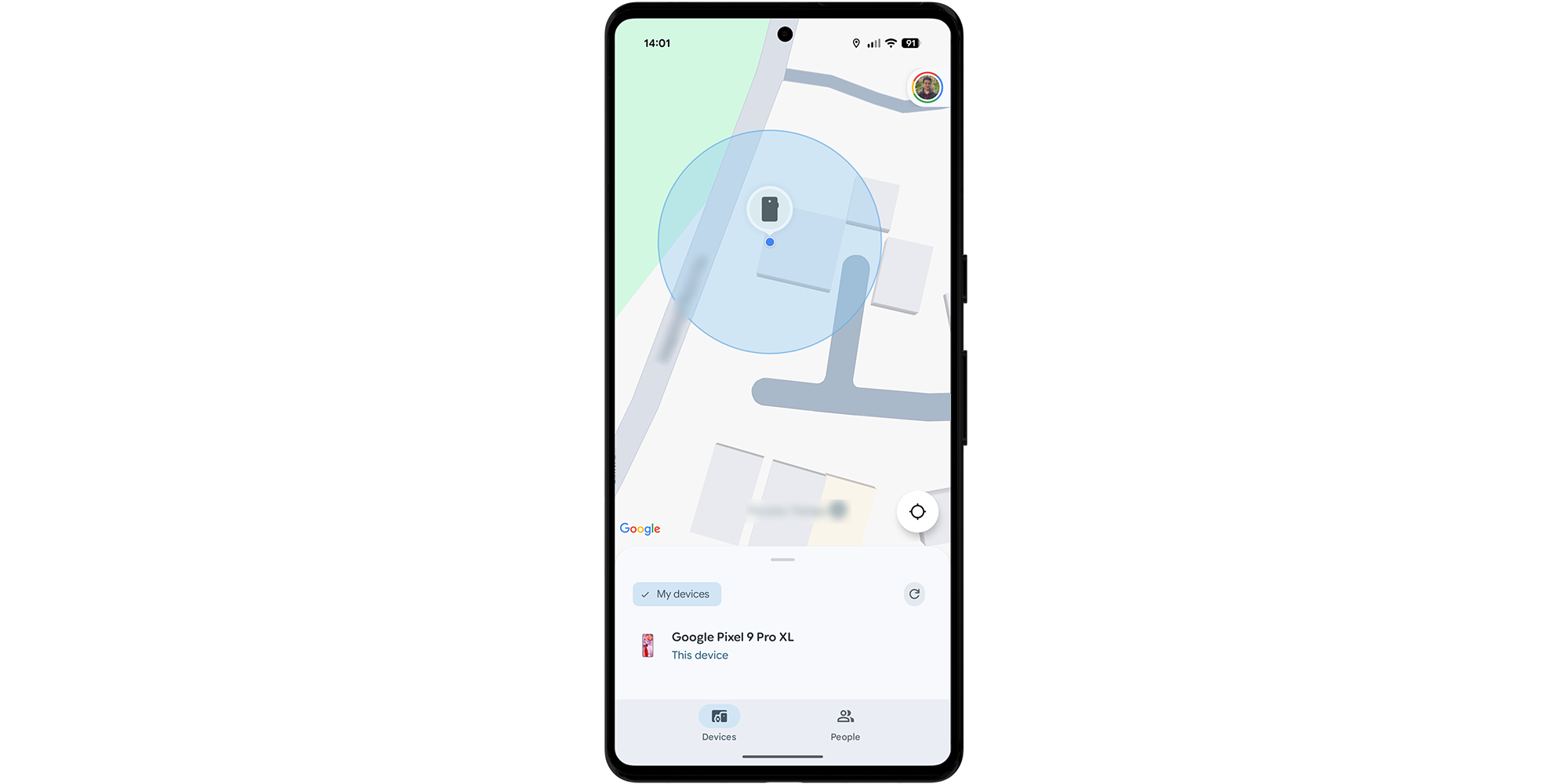
Get a year of super-useful advice
Solve your tech issues and get a year of our super-useful tech support for only £49 a year.
Join Which? Tech SupportBy clicking a retailer link you consent to third-party cookies that track your onward journey. This enables W? to receive an affiliate commission if you make a purchase, which supports our mission to be the UK's consumer champion.

Our mobile phones hold so much of our lives. We use them to organise social events, remind us to go to appointments and even pay for our shopping. But if your phone gets stolen or lost, it'll have a big impact on your life – unless you know what to do.
If your phone is stolen, the thief will probably wipe it to sell it as fast as possible and your data won’t be used. However, there’s a chance they might try to hack into your accounts.
Below, we explain the steps you need to take before and after your phone is stolen, plus we show you ways to toughen up your phone's security.
If your phone has just been stolen, you'll want to get online as quickly as possible to access your phone remotely. You could use another device, such as a laptop or tablet, or borrow a phone from a friend. The quicker you can carry out Step 1, below, the better.
Step 1: Access your phone remotely
Note that if you choose to erase data or factory reset, you will no longer be able to track the device.
Step 2: Call your network provider
Your network provider can remotely suspend or disable your SIM card, preventing your phone from making calls or using data. You'll be asked some security questions to prove your identity.
Ask your provider for your phone's IMEI number as this will help with filing a police report. Note that this number may also be on the packaging that your phone arrived in.
Step 3: Contact your bank
Ask your bank to suspend mobile payment methods like Apple Pay or Google Pay.
Step 4: File a police report
Report the incident at your local police station by contacting 101 or going in person. Provide the IMEI number issued by your network provider. Ring Citizens Advice if you need support from a trained adviser.
The police and phone providers will likely ask for your phone's IMEI details if you report it stolen. The IMEI will identify your exact phone and the police can use it to check if it ends up on sale anywhere.
Next, if you haven't already set up a Find My Phone service on your phone, you need to do this right now. Once it's done, you can virtually control your phone and stop your data from falling into the wrong hands. Your future self will thank you for it.
Finally, take a note of your network provider's number – some have specific numbers you can use if a phone is stolen. Write it down and keep it in a purse or wallet with other important contacts you may need to inform if your phone has been stolen.
We've tested a selection of the most popular Bluetooth trackers, including the Apple AirTag, to see how well they help you find lost items. See our guide to the best Bluetooth trackers.
If your Apple iPhone can be upgraded to iOS 17.3 or higher, you can enable Stolen Device Protection, which aims to prevent thieves from locking you out of your Apple accounts or wiping your phone.
By entering locations you frequent a lot, such as your home or work, your phone can be prompted to ask for extra authentication when away from these locations before allowing any major changes on your device, and not let you change anything significant for an hour. This should give you time to locate your iPhone with Find My iPhone (see below) and secure your iPhone's private data remotely.
After you've upgraded your phone to iOS 17.3, a prompt is likely to appear asking you if you want to enable Stolen Device Protection. If not, you can enable it by going to Settings > Face ID & Passcode > Turn on Stolen Device Protection.
To have Stolen Device Protection, you must have a lock on your iPhone's home screen (passcode, Face ID or Touch ID), use two-factor authentication for your Apple ID, and set up Significant Locations in your Location Service, found in your phone's settings. You must also have Find My iPhone enabled, which we explain how to do, below.
To set up Find My iPhone while you have your mobile with you, follow these steps:
To use Find My iPhone from a computer, visit icloud.com/find or Apple’s Find My app. Log in with your Apple ID. You’ll need your phone to be connected to the internet and turned on to link up to it, so find it quickly as a thief might turn it off.
On Find My iPhone, you can take a number of steps to protect your phone’s data. You can locate it, secure it in Lost Mode, add a recovery message to the screen, make it play sounds (even if it’s on silent mode) and erase all your data.
Note that if you erase your data, you won’t be able to locate the device any more.

See how many iPhones made it into our guide to the best smartphones – or check out the best iPhone deals.
The Find Hub service on Android allows you to secure your phone from another device to protect your data and accounts from getting into the wrong hands.
On some smartphones, you can also turn on Theft protection, which automatically locks your screen if it detects motion linked to theft – for example, if the phone is snatched and driven away quickly. To enable it, open your device settings, search for Theft protection, and switch on Theft Detection Lock.
From the same Theft protection page, you can also turn on Remote Lock. When this is on, you can lock your screen remotely if your device is lost or stolen.

To set up Find Hub while you have your phone on you, go to Settings > Security and privacy > Device finders > Find Hub. Enable Allow device to be located.
To use Find Hub, visit android.com/find and log in with your Google account.
You can locate your phone, lock it with Secure device, make it play sounds (even if it’s on silent) and erase all your data (although you’ll no longer be able to locate the phone). If you find it later, you’ll need your Google Account password to use it again.

To set up SmartThings Find while you have your phone on you, follow these steps:
To use Samsung’s SmartThings Find service from a computer, go to smartthingsfind.samsung.com and sign in to your Samsung account. Here, you can locate and lock your device – that means anybody who uses the phone will be unable to use Samsung Pay and Samsung Pass.
As soon as you realise your phone has gone, you need to follow these steps to help prevent your data from falling into the wrong hands:
Keep reading to find out whether you should consider taking out phone insurance, plus our expert tips on how you can tighten up your phone's security to protect your data.
Use a strong passcode to unlock your phone and strong passwords for your accounts – make them long and use a mixture of characters. Setting up face or fingerprint recognition means fewer passwords to remember.
By teaming up with a reliable password manager, you can safely store all your passwords for different accounts, or share data with trusted friends and family.
See our expert guide on how to create secure passwords.
If you’re keeping notes on your phone with personal information in them, you can lock them with a password.
This prevents you losing your data if your phone goes missing. Most mobile phone manufacturers have free automatic backups, such as iCloud or Samsung Cloud, but you might have to pay if you need more space. You could also back up to another device such as a laptop, SD card or external hard drive.
If you want to store your important files online, explore our guide on how to choose the best cloud storage service.
This is a register that the police can use to return your phone to you if it’s found – but they can only do this if your phone is logged on Immobilise.com.
See also: What to do if your laptop gets stolen.
If you have an expensive phone, it could be worth taking out an insurance policy to cover the cost, should the worst happen. But double-check it’s not already covered – for instance, under a warranty from the retailer, as part of your home contents insurance or even as a perk from your credit card.

You can cover your phone at a reasonable price through personal possessions insurance. The downside is that your premium might go up if you claim, but we recommend renegotiating with your provider if this happens.
Alternatively, you can take out theft and loss insurance from your phone provider, manufacturer or a third-party insurer registered with the Financial Conduct Authority (find one on register.fca.org.uk).
These policies might require you to insure it within a certain time period, and some claims won’t be valid unless you have Find My Phone services enabled.
For expert advice on phone insurance, consult our guide – mobile phone insurance: how to get the best cover.

Solve your tech issues and get a year of our super-useful tech support for only £49 a year.
Join Which? Tech SupportWhich? Tech Support can help you keep on top of your home tech. Our experts explain things clearly so you can resolve issues and feel more confident using your devices.
Get unlimited 1-2-1 expert support:
You can join Which? Tech Support.
Find Hub image created using Mockuphone